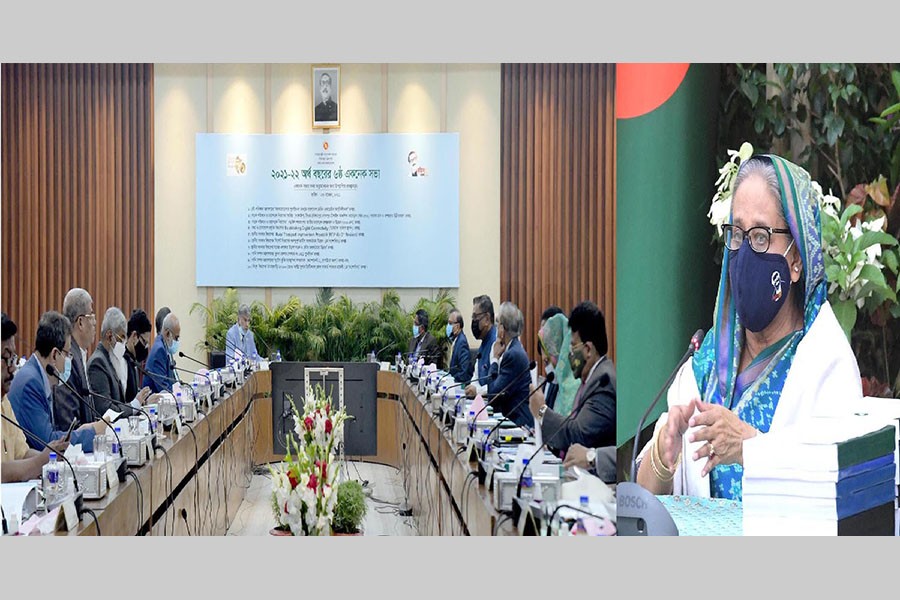The Executive Committee of National Economic Council (ECNEC) on Tuesday cleared the first revision of Matarbari 2X600 MW Ultra Supercritical Coal Fired Power Project, raising its cost by Tk 158.70 billion and extending the deadline to December 2026 from June 2023.
The approval came from the weekly ECNEC meeting held virtually with ECNEC Chairperson and Prime Minister Sheikh Hasina in the chair, reports UNB.
The Prime Minister joined the meeting from her official residence Ganobhaban, while others got connected from the NEC conference room.
"The meeting approved 10 development projects involving an estimated cost of Tk 293.44 billion (only additional costs of revised projects counted)," said Planning Minister MA Mannan while briefing reporters after the meeting.
Of the total cost, Tk 110.03 billion will come from government funds while the rest of Tk 189.32 billion from foreign sources as loans, he said.
Of the approved projects, seven are new while three are revised ones, he said.
The cost of the Matarbari project now stands at Tk 518.55 billion against the original amount of Tk 359.84 billion. The project deadline was extended till December 2026 from June 2023.
Regarding the project, State Minister for Planning Dr Shamsul Alam said the Prime Minister suggested forming a development authority in Matarbari for the overall management since various development operations are being carried out there centring the coal-fired power plant.
About the additional cost involvement of Tk 158.70 billion in the Matarbari coal-fired power plant, Planning Commission Member Sharifa Khan said the additional cost would mainly ensure deep seaport facilities there.
Around 98 per cent of the additional cost there would be utilised for ensuring deep seaport facilities, she said.
Sharifa said there is no problem of coordination regarding implementation of the project while the power plant is expected to go into operation in 2024.
According to the project factsheet provided by the Planning Commission, the reasons behind the project's revision include the rise of costs for channel, jetty, land development and power plant construction alongside increment of costs against other civil works like Turbine, Boiler, Coal & Ash Handling and Trial Run.
Besides, the costs against consultancy firm, VAT and import duty, rehabilitation and compensation, rural electrification and township construction and expansion of works are among other reasons.
Among the new projects, ECNCEC approved the 'Establishing Digital Connectivity' project involving Tk 58.83 billion, aiming to transform the government services into e-services to render these easily and quickly for the people across the country.
Another objective of the project is to intensify the use of ICT by construction of ICT infrastructure.
The big project will be implemented to establish broadband internet connectivity across eight divisions, 64 districts, all upazilas, all unions and even up to village-level throughout the country by June 2025.
Of the cost, Tk 25.05 will come from government funds, while the remaining Tk 33.79 billion from the Chinese government as project assistance.


